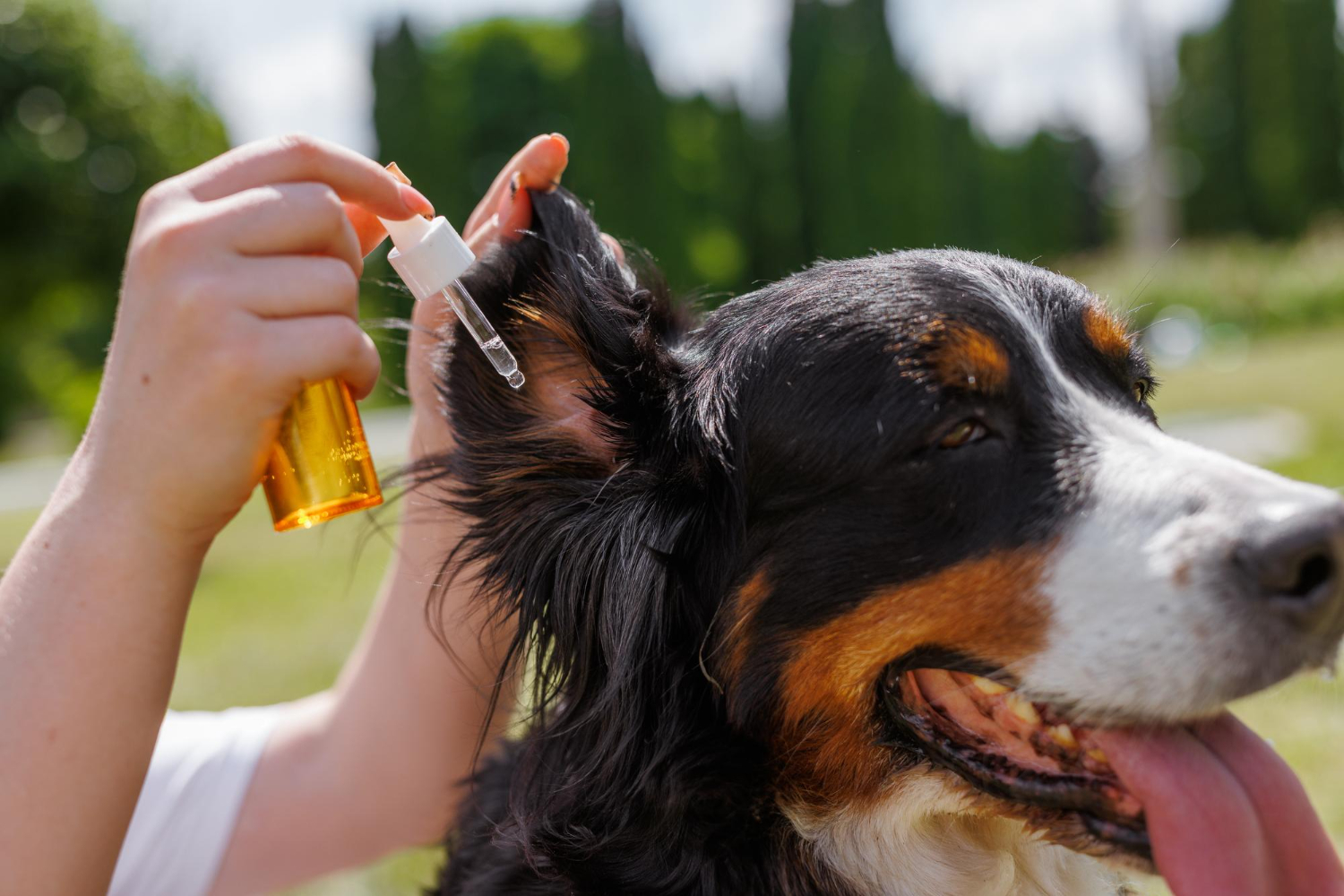CBD Oil for Dogs has become increasingly popular among pet owners looking for natural remedies for their dogs. Many believe it offers several health benefits, including relief from anxiety, pain management, and improved overall well-being. Research suggests that CBD oil can be effective for dogs dealing with various issues, making it a compelling choice for many pet parents.
As with any treatment, it’s essential to understand the basics of CBD oil and its effects on dogs. Pet owners should be aware of the potential side effects and how to select high-quality products. Finding the right CBD oil can enhance a dog’s quality of life while ensuring their safety and health.
With many brands on the market, knowing which to choose can be overwhelming. By evaluating different options and considering testimonials, dog owners can make informed decisions about incorporating CBD oil into their pets’ routines.
Key Takeaways
- CBD oil may help with anxiety and pain in dogs.
- It’s important to select safe, high-quality products.
- Understanding potential side effects is crucial for pet owners.
Benefits of CBD Oil for Dogs
CBD oil offers several potential benefits for dogs, focusing on their emotional and physical well-being. Its properties may provide relief for various conditions, making it a popular option among pet owners looking for natural remedies.
Anxiety and Stress Relief
CBD oil can be helpful for dogs experiencing anxiety and stress. It works by interacting with receptors in the brain that regulate mood and fear responses. Many pet owners have noticed improvements during stressful situations, such as thunderstorms or fireworks.
- Calming effect: CBD may help reduce racing thoughts and promote relaxation.
- Behavioral improvements: Dogs may show fewer signs of stress-related behaviors, like barking or pacing.
By fostering a sense of calm, CBD oil can improve a dog’s quality of life, making them more comfortable in anxiety-inducing environments.
Pain Management
CBD oil has been noted for its potential in managing pain. It interacts with the body’s endocannabinoid system, which plays a critical role in pain regulation. CBD may help manage both chronic and acute pain.
- Joint pain relief: CBD can be beneficial for dogs with arthritis or joint issues.
- Post-surgery recovery: Some veterinarians suggest CBD for easing pain following surgical procedures.
This natural approach offers a way to help alleviate discomfort without relying solely on pharmaceuticals.
Anti-Inflammatory Effects
CBD oil is also recognized for its anti-inflammatory properties. It can reduce inflammation caused by various conditions, including allergies and injuries. This can lead to significant relief for dogs suffering from chronic inflammation.
- Supports healing: Reduced inflammation can accelerate recovery from injuries.
- Allergy relief: CBD may assist in easing allergy symptoms by reducing inflammation in the body.
This property can enhance a dog’s overall health by supporting better function and comfort in daily activities.
Seizure Control
Another significant benefit of CBD oil for dogs is its potential to help control seizures. Some studies suggest that CBD may decrease the frequency and severity of seizure episodes in dogs with epilepsy.
- Promising results: Many dog owners report fewer seizure occurrences after using CBD.
- Veterinary interest: The growing body of research has led to increased attention from veterinarians exploring CBD treatments.
While more research is needed, the early findings suggest that CBD could become a valuable tool in managing seizure disorders in dogs.
Understanding the Basics of CBD Oil
CBD oil is a popular choice among dog owners looking for natural remedies for various health issues. It is important to know how it differs from THC, how it affects dogs, and the role of the endocannabinoid system.
Difference Between CBD and THC
CBD (cannabidiol) and THC (tetrahydrocannabinol) are two key compounds found in cannabis. They come from the same plant but have different effects.
- Psychoactive Effects: THC is known for its psychoactive properties, which can make a user feel “high.” In contrast, CBD does not produce this effect, making it safer for pets.
- Health Benefits: Both compounds have potential health benefits. However, CBD is often preferred for dogs because it can help with pain, anxiety, and inflammation without the mind-altering effects of THC.
The low levels of THC in most CBD oils for dogs ensure they are safe and non-intoxicating.
How CBD Interacts with the Canine Body
When CBD enters a dog’s system, it interacts with receptors in the brain and body. These receptors are part of the endocannabinoid system (ECS).
- Receptor Interaction: CBD binds to CB1 and CB2 receptors, which play a role in regulating various bodily functions such as mood, pain, and immune response.
- Effects on Behavior: The interaction between CBD and these receptors can reduce anxiety and improve overall behavior in dogs.
- Potential for Pain Relief: Many pet owners report that CBD helps to ease pain and inflammation in their pets, making it a popular choice for dogs with arthritis or similar conditions.
This interaction can lead to noticeable improvements in a dog’s quality of life.
The Endocannabinoid System in Dogs
The endocannabinoid system (ECS) exists in all mammals, including dogs. It helps maintain internal balance and regulates multiple functions.
- Components of the ECS: The ECS consists of endocannabinoids, receptors, and enzymes. It helps manage stress, pain, sleep, and appetite.
- Function in Dogs: In dogs, the ECS plays a vital role in their health and well-being. It regulates various processes, ensuring the body functions correctly.
By influencing the ECS, CBD may promote better health and address issues like anxiety and pain. Understanding this system can help pet owners make informed choices about using CBD oil for their dogs.
Safety and Side Effects
Using CBD oil for dogs can offer benefits, but it is important to be aware of potential side effects and safety considerations. This section highlights common side effects, important usage considerations, and how to effectively monitor a dog’s response to CBD.
Common Side Effects
Many dogs may experience side effects from CBD oil. The most reported reactions include:
- Increased Thirst: Dogs might drink more water than usual.
- Drowsiness: Some dogs may become sleepy or lethargic.
- Lightheadedness: High doses can lead to a temporary drop in blood pressure, causing feelings of dizziness.
- Stomach Discomfort: Upset stomach or changes in appetite can occur.
These effects are often mild but can vary based on the individual dog’s reaction and dosage. Adjusting the amount of CBD given can help mitigate these issues.
Considerations for Safe Usage
To ensure safety when using CBD oil for dogs, consider the following points:
- Consult the Veterinarian: Always talk with a veterinarian before starting CBD. They can provide guidance on dosages and possible interactions with existing medications.
- Start Low and Go Slow: Begin with a low dose to see how the dog reacts. Gradually increase the dosage as needed.
- Check the Product Quality: Choose CBD oils specifically formulated for pets. Ensure they are from reputable brands that offer third-party lab testing.
Being aware of these considerations can help prevent adverse effects and promote safe use of CBD.
Monitoring Your Dog’s Response to CBD
Observing a dog’s reaction after administration of CBD oil is crucial. Owners should:
- Take Notes: Keep track of any changes in behavior, appetite, or energy levels.
- Watch for Side Effects: Look for signs of drowsiness, increased thirst, or any unusual behavior.
- Adjust Dosage as Needed: If negative side effects occur, it may be necessary to adjust the amount of CBD given or consult the veterinarian.
Monitoring allows owners to identify any problems early and make informed decisions about continuing or adjusting their pet’s CBD regimen.
Choosing the Right CBD Oil for Your Dog
Finding the right CBD oil for a dog involves understanding different types of products, identifying quality indicators, and knowing the right dosage for safe use. Each factor plays a crucial role in ensuring the best outcomes for canine health.
Types of CBD Products for Dogs
There are mainly three types of CBD products available for dogs: full-spectrum, broad-spectrum, and CBD isolate.
- Full-Spectrum CBD contains all compounds found in the hemp plant, including trace amounts of THC. This may enhance effectiveness due to the entourage effect.
- Broad-Spectrum CBD also includes various cannabinoids, but it has no THC. This option can provide benefits without the psychoactive effects.
- CBD Isolate is the purest form, containing only CBD. It is ideal for pet owners who want to avoid other compounds completely.
Choosing the right type depends on the dog’s specific needs and any sensitivities they might have.
Quality Indicators for CBD Oil
When selecting CBD oil, certain quality indicators are essential. Look for the following:
- Source of Hemp: Ensure it’s organically grown, ideally in the U.S.
- Third-Party Testing: Reputable brands have their products tested by third-party labs. Results should be available for customers.
- Ingredient Label: Check for additives. Quality oils have minimal and natural ingredients.
- Transparency: Brands should provide clear information about their extraction methods and sourcing.
Quality CBD oil is crucial for ensuring that a dog receives a safe and effective product.
Proper Dosage and Administration
Determining the right dosage of CBD oil is vital. A common guideline is 0.2 mg of CBD per pound of body weight. For example, a 25-pound dog would need about 5 mg of CBD.
Here’s a simple dosage chart:
| Dog Weight (lbs) | CBD Dosage (mg) |
|---|---|
| 10 | 2 |
| 25 | 5 |
| 50 | 10 |
| 75 | 15 |
Dosage can vary based on the product’s concentration. Always start with a lower dose and monitor for effects, adjusting as necessary. Administer CBD oil directly or mix it into food for easier consumption.
Testimonials and Case Studies
Many pet owners have shared positive experiences with CBD oil for their dogs. These accounts highlight various benefits such as reduced anxiety, improved mobility, and relief from pain.
Case Study Examples:
- Anxiety Relief: A case involving a dog with severe anxiety showed notable improvement after using CBD oil. The owner reported that the dog was calmer during thunderstorms.
- Pain Management: In another case, a dog suffering from arthritis experienced less pain after treatment with CBD oil. The owner noticed increased activity and playfulness.
Owner Testimonials:
- “Since using CBD oil, my dog is much more relaxed during car rides.”
- “We saw a difference in our dog’s movement within a week. It’s amazing!”
Sourcing Products:
When choosing a CBD oil, look for products that have been tested for quality and safety. Many reviewers stress the importance of sourcing from reputable brands.
Veterinary Insights:
Veterinarians have observed improvements in dogs treated with CBD oil. Doctors often recommend starting with a low dose and adjusting as needed based on the dog’s response.
These testimonials and case studies offer valuable insight into the potential benefits of CBD oil for dogs. They can serve as helpful guidance for pet owners considering this option.



